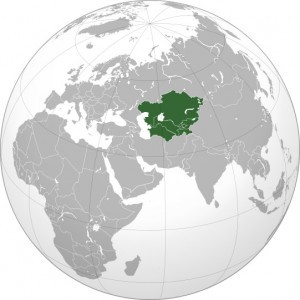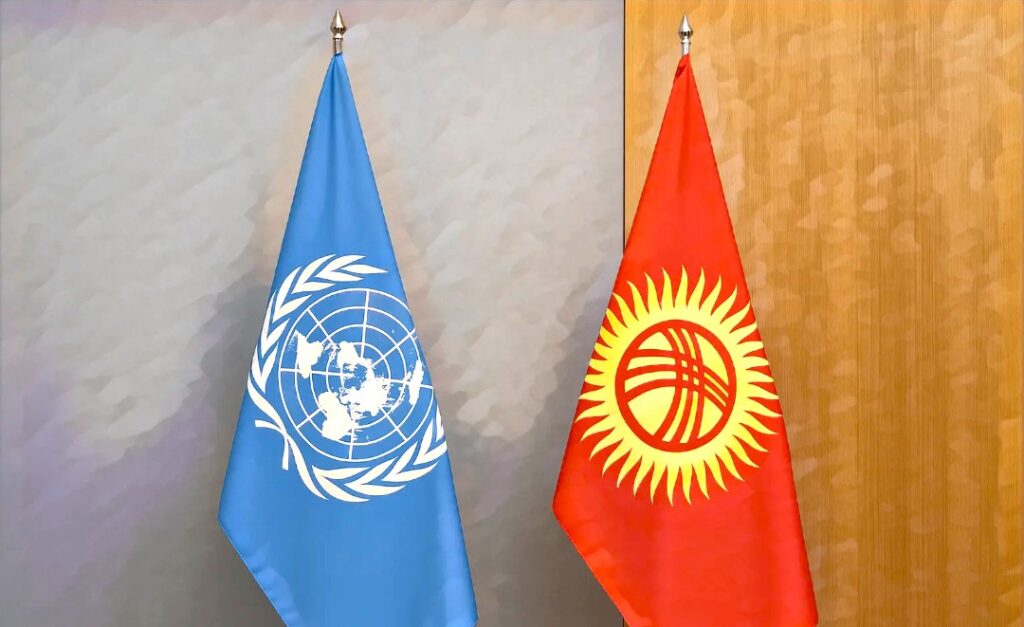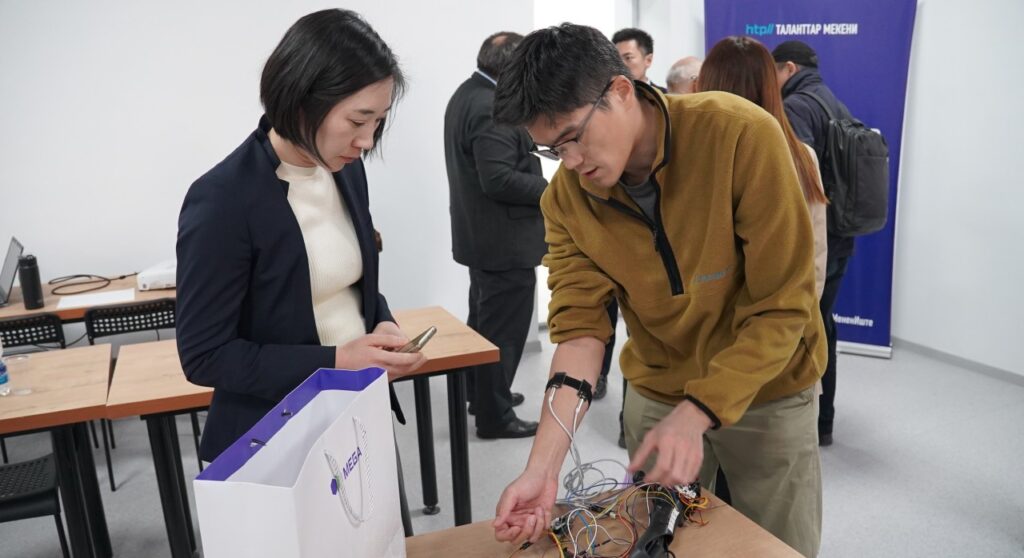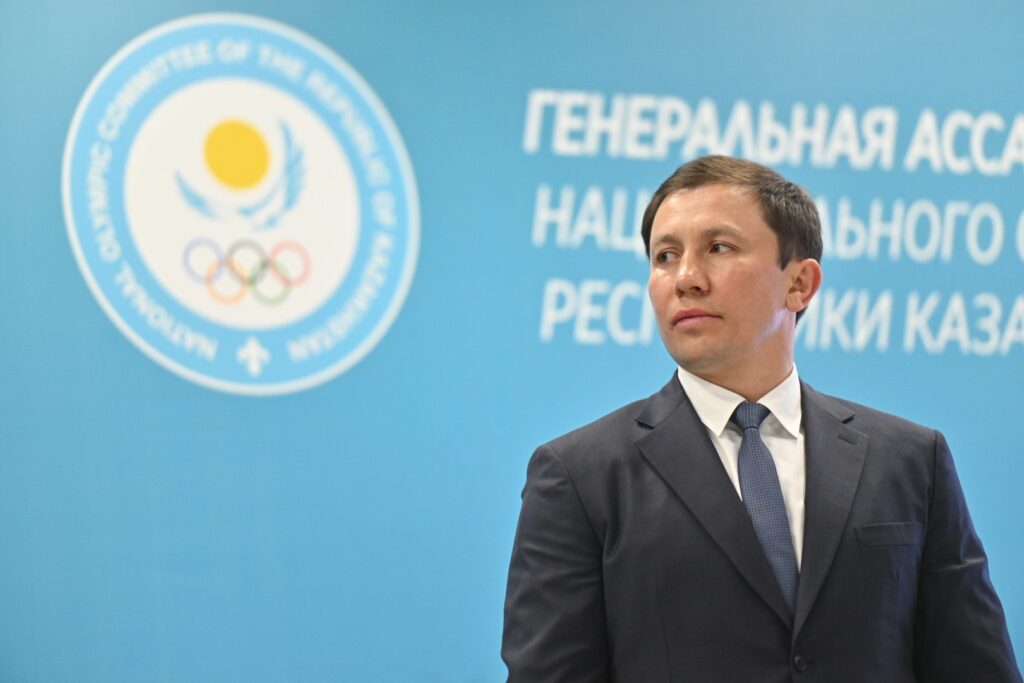BISHKEK (TCA) — The Times of Central Asia presents to its readers Stratfor’s Global Intelligence, a weekly review of the most important events that happened in the world — from Europe to Middle East to Russia to Central Asia to Afghanistan to China and the Americas.
The Week That Was
Shaping perceptions in the Middle East
Outside and regional powers in the Middle East are working double time to shape perceptions, giving the impression of strategic realignments than what may actually be the case. Moscow is looking at how little time is left before the U.S. election and what needs to be done to improve its chances of extracting strategic concessions. To that end, Russia is trying to make it appear that its influence is escalating in a theater where the United States is deeply embroiled. On Aug. 17, Russian Tu-22M3 strategic bombers conducted airstrikes over Iraq and Syria out of Iran’s Hamadan air base. This was clearly aimed at conveying an impression to the United States and the picture will be even more convincing should Russia successfully negotiate access to Turkey’s Incirlik air base.
From the satellite imagery we procured of the Hamadan base, and information from Russian contacts, the Russian Tu-22M3 bombers returned to their base in Syria after taking off from Iran. Subsequent bombers have used Hamadan as a refueling stop. The presence of at least four Su-34 fighter-bombers at Hamadan may imply a more sustained presence as Russia tries to both demonstrate a military footprint in Iran while also enhancing tactical and operational security. (Syrian rebels have been known to plant spotters close to Syria’s Hmeimim air base in Latakia from which the Su-34 fighter jets typically fly.)
Though Tehran publicly confirmed that Russia has been granted military aviation privileges in Iran, there seems to be a great deal of discord among the Iranian political elite over the move. After all, the Soviets (along with the British) occupied Iran during World War II and the Iranian constitution now expressly forbids foreign military bases in Iran. It appears that the decision to grant Russia temporary access was made by Supreme Leader Ayatollah Ali Khamenei. He did this through the Secretary of the Supreme National Security Council of Iran, Ali Shamkhani, in consultation with the new chief of the Armed Forces General Staff Maj. Gen. Mohammad Hossein Bagheri, who hails from the Islamic Revolutionary Guard Corps. The supreme leader may have decided it was worth granting Russia this privilege in exchange for fortifying Russia’s military commitment in Syria in defense of the loyalists. However, Iran remains highly wary of Russian intentions.
Turkey, for its part, is playing along with Russia and Iran in this array of negotiations in hopes of getting the clearance to directly contain Kurdish People’s Protection Units (YPG) trying to expand further westward in northern Syria. Turkey is discussing with both Russia and the United States a plan to establish checkpoints manned by international monitors to address concerns that any cease-fire imposed, however localized, can be used by either side to resupply forces. Russia, Iran and Syria want to ensure Turkey limits its reinforcement to Syrian rebels, but Ankara will need room operate militarily in the north before it agrees to any limitations. Turkey’s public distancing from NATO has been alarming to the West. Turkish Foreign Minister Mevlut Cavusoglu even lambasted the West this week for creating a crisis in Ukraine by “always threatening the country and forcing it to make a choice between them and Russia.” It should be remembered, however, that this blustery rhetoric is merely a tactic designed to compel Russia to agree to its terms in Syria and highlight to the United States the risks of further alienating a strategic partner like Turkey.
A lack of political consensus continues to delay the finalization of the new Iran Petroleum Contract, putting Iran’s future production growth at risk. Iranian Oil Minister Bijan Namdar Zangeneh met with the parliamentary speaker, Ali Larijani, and said that more changes will be introduced to the Iran Petroleum Contract. The Iran Petroleum Contract was approved by President Hassan Rouhani’s Cabinet earlier in the month and Iran was hoping to sign the first contracts under the Iran Petroleum Contract this year. Even though the Cabinet and the Ministry of Petroleum are technically the only parties that need to approve the contract, Larijani is still trying to defuse dissent stemming primarily from the Islamic Revolutionary Guard Corps, which fears losing out to foreign contractors.
On a related note, Rouhani reportedly signed a deal with the Islamic Revolutionary Guard Corps to set up a bank that will distribute government loans at a low interest rate. This could be an incentive to help bring the Islamic Revolutionary Guard Corps on board with the new Iran Petroleum Contract and provide another channel for the Islamic Revolutionary Guard Corps to build patronage. Iran’s oil production rise has already stalled in approaching a pre-sanctions level of 4 million barrels per day. (Iran is believed to be at around 3.85 million barrels per day currently.) A substantial rise beyond this level will likely need new investment and for that, they need to get the Iran Petroleum Contract off the ground.
Keeping Tabs on the Kremlin Struggle
More details surfaced this week on the circumstances surrounding the fall of former Russian Chief of Staff Sergei Ivanov. In the days before the reshuffle, Russian President Vladimir Putin had called an impromptu session of the permanent members of the Security Council on Aug. 8, likely due to the incidents in Crimea. Ivanov, who was the architect behind the policy to annex Crimea, was suspiciously missing along with five other permanent members of the council amid rumors that he was pressing Putin to take decisive action on Ukraine and ultimately reach a settlement with the West instead of dragging out the frozen conflict.
Putin held a security council meeting in Crimea and publicly endorsed a suggestion from Russian Prime Minister Dmitri Medvedev to appoint former Minister of Education and Sciences Dmitry Livanov as the president’s envoy on trade and economic relations with Ukraine. We are on alert for any signals that could portend a shift in Russia’s Ukraine policy amid the deeper Kremlin struggle underway. Ivanov’s fellow Federal Security Service (FSB) alum and key ally Igor Sechin, who heads Rosneft, is also in the crosshairs. Putin has postponed the privatization of oil firm Bashneft, likely due to Rosneft’s aggressive attempt to take the smaller company. In addition, the privatization of oil giant Rosneft looks to be moving ahead at full steam, against Sechin’s wishes. As Putin isolates himself with less qualified loyalists, the Russian leader’s powerful former inner circle is growing restless.
China’s Big Step in Advanced Encryption Communications
China successfully launched the world’s first quantum-communications satellite this week, marking an important step in advanced encryption communications. The satellite will use quantum mechanics, a discipline of physics dealing with the behavior of matter and light on the atomic and subatomic scale, to distribute encryption keys between the satellite and two ground stations. Quantum key distribution is an emerging technology that allows for virtually “hack-proof” communication between two users.
China is perhaps the world’s most advanced country in deploying this technology and has already set several records for the longest on land connections using it. More broadly, the slow and continued rise of quantum computers, which perform computing using quantum mechanics, have the potential to break conventional encryption keys efficiently, jeopardizing many of the encryption standards that are in place today. For the foreseeable future quantum key distribution platforms will be expensive and reserved for securing only the most sensitive information, such as those related to national security. Nevertheless it is a key emerging technology with highly tangible geopolitical implications.
China’s Property Markets Cooling Off Again
On Aug. 18, China’s National Bureau of Statistics released data on average home prices across the country’s largest cities. According to the data, home prices rose in 51 of 70 surveyed cities in July, down from 55 in June, 60 in May and 65 in April. The data confirm Stratfor’s expectation that Chinese property markets would cool in the second half of 2016 after a stimulus-driven surge in activity in the year’s first quarter. News of slowing price growth has spurred market speculation that Beijing will ramp up construction spending in the months ahead in an effort to offset recent declines, especially in second-tier and smaller cities. Premier markets like Shenzhen and Shanghai, by contrast, will likely tighten home purchase controls to stem surging prices. However, there are mounting indications that President Xi Jinping intends to accelerate economic reforms and industrial consolidation — as well as signs that Xi’s hold on economic policy is strengthening compared with other leaders, notably Premier Li Keqiang. If so, major stimulus in the second half of 2016 — which would indicate slower progress on reform and restructuring — may be less likely.
Another Step in China’s Financial Liberalization
Beijing has taken another notable step in its goal to allow more cross-border flows of capital. China’s State Council approved a link between stock markets in Hong Kong and Shenzhen this week, following a similar mechanism for the Shanghai-Hong Kong link established in 2014. Though there will be a limit in the daily volume of trade, an aggregate quota system is expected to be dropped. The Shanghai stock market, while much larger, is dominated by China’s state owned enterprises as well as banks, insurance and other financial services companies. Given the lack of confidence in China’s heavy industry the poor performance of banks on top of the trading restrictions, the Shanghai-HI link has fallen short of Beijing’s expectations.
The Shenzhen market, while more volatile, hosts many of Chinese start-ups, technology firms and companies that would fit more in line with China’s broad transition towards a consumption based economy. Tech companies, for example, represent roughly 25 percent of the Shenzhen stock market while consumer-related stocks (both for staples and discretionary spending) make up another quarter. China hopes that allowing foreign investment into this active stock market with smaller companies will stabilize some of the activity on the market. It also allows foreign investors to target a different slice of the Chinese market. China’s financial liberalization process will remain gradual and cautious so as to avoid large capital outflows whenever jitters run through the economy.
Trouble on the Bolivarian Front
Venezuelan citizens, who had previously been exempt from Nicaraguan visa requirements, will now have to apply for a visa to travel to Nicaragua. This is a big shift for Nicaragua-Venezuela relations. Nicaragua has been a core ally of Venezuela in Petrocaribe and the Bolivarian Alliance for the Peoples of Our America (ALBA), both designed to distance the region from U.S. energy sources.
As Venezuela’s political and economic crisis deepens, Nicaragua is likely trying to insulate itself from fleeing Venezuelan officials and opposition members. The reactions from the neighborhood are just as important in watching Venezuela itself in gauging how close the country is to a break point.
South Africa and the ANC’s uphill battle
In the second week following South Africa’s municipal elections, jockeying over coalition formation revealed little consensus amongst the country’s top political parties. The nationalist-Marxist Economic Freedom Fighters refused to join in any formal coalitions with the ruling African National Congress (ANC) or the Democratic Alliance. The ruling ANC and its rival, the Democratic Alliance, managed to form some coalitions with small parties but in several areas there were no coalitions formed at all, meaning that looking forward minority municipal governments will struggle to enact reforms or pass other important legislation. The ANC, fresh off its defeats in major metropolitan areas like Johannesburg, Tshwane (home to Pretoria, the country’s administrative capital), and Port Elizabeth, will contend with an increasingly competitive political landscape at the local level.
Moreover, the defeat has exacerbated pressure on the ANC’s hierarchy, with the ANC’s Youth League calling for an earlier leadership conference, which should it occur, would likely transform into a party referendum on President Jacob Zuma’s leadership (his term as ANC party head finishes in 2017; his term as the country’s president in 2019). Consequently, it will be important to watch for fractures within the ANC’s leadership, notably between pro-business members and more leftward-leaning and ethnic-Zulu oriented factions as the country’s dominant party seeks to regain ground lost during the recent elections.
Full Articles
Iran, Russia’s New Staging Post
Satellite imagery from Aug. 17 shows the continued presence of Russian military aviation at Hamedan air base, west of Tehran. A number of Su-34 fighter-bombers are present, with four aircraft located close to each other at the eastern end of the airfield. Photographs posted online Aug. 15 showed at least three Russian Tu-22M3 strategic bombers (also known by their NATO reporting name, Backfire) at the air base. Moscow and Tehran have officially confirmed the presence of Russian military aviation assets in Iran. Having previously used the base as a refueling stop, the Russian aircraft now appear to be conducting operations from there, striking targets in Syria since Aug. 16.
Why the U.S. Won’t Be Leaving Afghanistan Any Time Soon
Fifteen years after the United States invaded Afghanistan, the country’s Taliban insurgency rages on, forcing the embattled Afghan government to continue leaning heavily on foreign assistance. The Taliban’s persistent threat to political stability, coupled with the nascent Islamic State menace rising in the east, will make it next to impossible for the United States to extract itself from the Afghan conflict any time soon.
What the Brexit Means for Ukraine
In the years since the Euromaidan uprising, political and economic integration with the European Union have become a cornerstone of the administration led by Ukrainian President Petro Poroshenko and Prime Minister Volodymyr Groysman. Poroshenko came to power in 2014 after President Viktor Yanukovich was deposed following months of protest inspired by his refusal to sign a trade agreement with the European Union. As one of his first acts in office, Poroshenko began negotiations to revive the agreement that his predecessor had rejected, and EU accession has been a primary goal for his government ever since. Now, the uncertainty created by the United Kingdom’s vote to leave the European Union has thrown Ukraine’s future in the bloc — and the legitimacy of the government in Kiev — into doubt.
In Syria’s Northeast, a Microcosm of the Civil War
In the northeastern corner of Syria, persistent skirmishes between Kurdish militias and forces loyal to the government in Damascus provide a clear example of how shifting alliances and competing interests in isolated pockets can shape the Syrian Civil War. Despite the Syrian Army High Command’s repeated attempts to arrange a cease-fire, battles continue to rage between forces loyal to the Syrian government and Kurdish militias in al-Hasaka province in the northeastern corner of Syria. The fighting — the most intense between the two factions since battles in April in Qamishli — puts Damascus in a difficult position. It must ensure the defense of its key remaining positions in al-Hasaka while avoiding a wider conflict with the Kurdish People’s Protection Units (YPG), given its deep commitment to the battle with rebel forces in Aleppo.
The Week Ahead
Watching the Fed
The annual macroeconomic policy symposium held by the Kansas City Federal Reserve in Jackson Hole will take place from Aug. 25 to Aug. 27, another key opportunity to catch signals on U.S. Fed policy moving forward. Global economic weakness overall, Brexit uncertainty and inconsistent U.S. data have halted the tightening cycle that began in December 2015. Last week’s release of the Fed minutes from its last monetary policy meeting in July revealed a divided Fed between monetary policy hawks and doves. One camp is pushing for another increase in the Fed funds rate sooner rather than later so that the Fed does not get behind the curve on raising interest rates, while others are less concerned about hyperinflation and would rather wait until the U.S. economy hits the Fed’s 2 percent inflation target (or it becomes clear that it will) before doing so again. Right now markets are pricing in virtually a 50/50 chance of the Fed raising rates by the end of this year and a one in four chance at its next monetary policy meeting Sept 20-21. All eyes at Jackson Hole will thus be on Fed Board of Governors Chair Janet Yellen, who will be giving a speech at the symposium on Aug. 26. That speech and any sideline comments by Yellen will scrutinized for any of where the Fed may be heading next month.
Let the Brazilian Impeachment Begin
Impeachment hearings against Brazilian President Dilma Rousseff will begin Aug. 25 in the Brazilian Senate. Rousseff will be allowed to present evidence in her defense during the hearings and then the senate will decide whether to impeach the president. The impeachment process could lead to renewed demonstrations in major cities, particularly from grassroots populist or leftist organizations affiliated with the Workers’ Party. The government expects that the impeachment process will be wrapped up by Aug. 29. Following the expected impeachment vote, interim President Michel Temer intends on announcing his economic reform agenda, which will include contentious issues like pension and labor reforms as well as privatization of state owned companies.
Intensifying Teacher Protests in Mexico
Dissident teachers belonging to the National Coordinator of Education Workers (CNTE) are expected to intensify protests starting Aug. 22, with a spokesperson in Chiapas claiming there will be bloodshed if the educational reform moves forward. The government is going to fully cave to the demand of shelving the reform, but negotiations are continuing amid the protest threats. There will likely be more releases of CNTE members from prison as well as the potential suspension of certain parts of the education reform in certain parts of the country (re-hiring teachers who fail tests, for example.) Demonstrations will remain concentrated in Michoacan, Oaxaca and Chiapas, with the potential for the blockage of roads and railways. The government has already been taking a lot of heat from private businesses in Oaxaca and other areas for supply disruptions out of Lazario Cardenas and greater effort will be made to appease the protestors along vital nodes of the supply chain.
Discussions on the Future of the EU
The week ahead will be full of summits and meetings, and will see southern Europe pushing hard to impose its own view of what the future of the European Union should look like. On Aug. 22, Italian Prime Minister Matteo Renzi will meet with German Chancellor Angela Merkel and French President Francois Hollande near Naples. The meeting is meant to find common ground on issues such as security, terrorism, migration and EU investment before a EU-wide summit in Slovakia in September. But Renzi is likely to raise the issue of fiscal flexibility in the European Union, hoping to be allowed to spend more before a crucial referendum on constitutional reforms around November. The issue will probably be discussed again on August 25 during a meeting of Socialist heads of government in Paris, where Hollande will host his center-left peers from across the continent.
The Kerry Itinerary
Following meetings in Kenya and Nigeria on counterterrorism, U.S Secretary of State John Kerry will head to Jeddah, Saudi Arabia Aug. 24-25 for meetings on the Yemen and Syria crises. Gulf Cooperation Council and British foreign ministers as well as the U.N. envoy to Yemen will be present for the talks, which are to be focused primarily on Yemen’s disintegrating political situation. In both Yemen and Syria, peace negotiations have fallen through without yielding an end to the fighting on the ground in multiple fronts across both countries. There is concern of Yemen has become even more vulnerable to proxy battles as the country fragments further. Recent Russian action in both Yemeni negotiations and the Syrian battlefield will be a topic of discussion between Kerry and his counterparts, as well as Gulf support for Syrian rebels. In light of this week’s display of Iranian and Russian alignment in Syria, the Gulf Cooperation Council will be looking for stronger reassurances from the United States to counterbalance Russia’s deepening involvement in the region.
Kerry will then meet his Russian counterpart Sergei Lavrov on Aug. 27 in Geneva, where the two are expected to be joined by U.N. Special Envoy for Syria Staffan de Mistura. Kerry and Lavrov have been keeping up a frequent phone dialogue in negotiating ways to implement and enforce a renewed ceasefire in Syria. Russia is hoping that with its alliance with Iran on display and with Turkey showing an eagerness to appease Russia, that the United States will bend to Russia’s demands in parallel negotiations on Ukraine and sanctions.
China, Japan and South Korea Summit
From Aug. 23-24, foreign ministers from China, Japan and South Korea are set to meet in Tokyo. The meeting has been billed as preparatory for a possible summit between the three countries’ leaders later this year. After a row over the Diaoyu-Senkaku islands led China and Japan to suspend the trilateral mechanism in 2012, no such meetings took place until November 2012, when Japan’s Abe and Chinese Premier Li Keqiang met with South Korea’s Park Geun-hye in Seoul.
If held, this year’s leaders summit would thus be the second since the restart of trilateral talks. Discussions at next week’s meetings are not likely to touch on sensitive or substantive matters; for now, the focus and significance of the talks lies primarily in re-establishing institutionalized communication between the three countries. At last year’s summit, issues like economic cooperation, the environment and disaster management — low hanging fruit, compared with thornier issues such as competing territorial claims — dominated the agenda.
Russian Budget Debate
Next week, Russian Prime Minister Dmitri Medvedev will hold a series of special sessions with various Cabinet members to finalize the 2016 government budget — despite only four months left in the year. The federal budget has long been a source of conflict within the Kremlin — particularly as funds are scarce as the Russian economy lingers in a recession since mid-2014. Medvedev is in crunch time to figure out how to plug a $31 billion hole in the budget for this year, in order to keep the budget deficit under 3 percent — the first deficit the Putin regime has ever run. Medvedev must come up with a plan, as parliamentary elections are on Sept. 18, and the new parliament will meet in October to ratify the budget. Then the Cabinet is quickly off to figuring out the 2017 budget before the end of the year. Moreover, the Kremlin is planning a blitz of financial handouts ahead of the election, including a flood of cash to pensioners. The Kremlin does have $38 billion in its Reserve Fund — but those funds will be needed to balance the 2017 budget. So the debate is whether to use up the Reserve Fund now, or try to cut more from the already slim budget. The planned privatization of Rosneft this year will give some cushion (to the tune of $11 billion), but that plan is still being fought over within the elites, and it does not solve all of Medvedev’s budgetary shortfalls.









